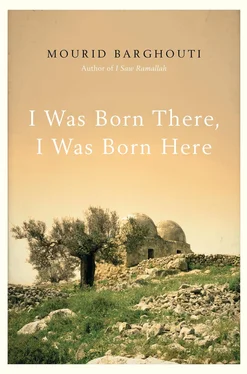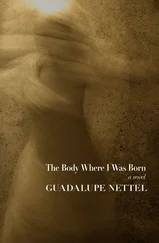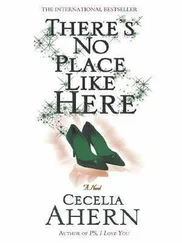I decide to convince myself too that everything’s normal. I prefer not to show my anxiety over what the engineer of the Sabra and Shatila massacre will do tomorrow, or the day after, when he unleashes his tanks and massed troops — themselves armored like tanks — onto our streets. I think to myself, If only our leadership, petrified of Israel as it is, could grasp the truth of Israel’s dilemma the way these passengers have.
The driver produces from beneath his feet a thermos of coffee, which he hands to the old man seated next to him, supplying him at the same time with a stack of small plastic cups.
As the first cup is poured, the smell of the coffee enters into a stealthy race with that of the cardamom. The cardamom wins, of course.
“Lord, bring it all down on Sharon’s head! Have some coffee, son, daughter. It’s very hot. Give some to the lady. Please, go ahead,” says the Hajj.
The cup reaches me via the hand of the girl sitting in front of me in the middle seat. I take it gingerly, look at it, raise it to my lips, and take a first sip.
Now this is coffee. It may not have the elegant cup that would make it some other kind of coffee, but it’s a perfectly timed cup of coffee. People can’t agree on where coffee’s secret lies: opinions range from the smell, the color, the taste, the consistency, the blend, the cardamom, the roast, to the shape of the cup and a number of other things. For me, it’s the timing. The great thing about a perfectly timed cup of coffee is that it’s in your hand the instant you crave it. One of life’s most exquisite moments is that in which a small luxury becomes a necessity. And someone has to present the coffee to you, because coffee is like roses: someone else has to present you with roses, you can’t present them to yourself. And if you do make the coffee yourself, it’s because at that moment you’re on your own, with no lover or anyone else to think of, a stranger in your own home. If it’s by choice, then you’re paying the price of your freedom; if it’s by necessity, you need to hear the doorbell ring. Its colors are also tastes and flavors — the blond and the dark, the full roast and the medium — so it acquires its different meanings from the expression on the face of the one who offers it to you and the circumstances in which they offer it. Coffee the first time you meet someone is different from coffee to make peace after a spat, which is different from coffee that the guest refuses to drink until a demand is met. Writing coffee is different from reading coffee, and coffee on a journey from coffee at home. Coffee in a hotel is different from coffee in your house, and coffee made on an open hearth from that made in a machine, while coffee from a cheerful face in a café is different from coffee from a sullen, gloomy face. And if the ‘dawn visitor’ tells you, with official courtesy and a weapon-bearing smile, as he tears you from your family and leads you away, “We’d like you to have a coffee at our place,” it’s a form of kidnapping, or murder; foolish is the man who trusts the government’s coffee. Again, coffee at a wedding is different from coffee at a wake, where ‘coffee’ loses all meaning and is handed round to the miserable company by an equally miserable ‘waiter,’ who doesn’t know his guests and doesn’t ask them how they like it. There, the waiter’s no waiter and the coffee’s no coffee, its cup cone-shaped and handleless, its timing and its flavor not of your choosing — the last thing you could care about on such a day, as though it had lost its very name forever.
This morning, however, Mahmoud’s offer of coffee comes at the perfect time and, along with the lively rain outside, sends a joy through my veins that is at odds with the bad news.
“But no smoking, if you’d be so kind. We’ll be there in an hour,” says the Hajj.
“What do you mean, an hour, Hajj?” says another. “Make that two, three hours … four. You heard what the man said: we may get there and we may not.”
Mahmoud smiles and corrects him confidently: “I said we will get there.”
A boy in his early twenties, with a broad forehead, a puzzling mole on his right cheek that I can’t make up my mind about, and small eyes that combine blackness and brightness; a boy confident as a new lamp, alert as a lawyer seized by a sudden idea, his voice commanding but not rough. Even in his winter clothes, he looks skinny. His expression is serious but relaxed and relaxing, assured and reassuring. Though young, he drives the car with an old hand’s seemingly careless care.
Between me and the fully veiled lady in the rear seat sits a sad young man who I tell myself must have a story. Everyone in this world has a story and since I hate it when anyone asks me, “What’s wrong?” I don’t ask him why he’s sad. During a passing glance in his direction, however, I find him smiling mischievously and his eyes direct me to a strange scene. The lady is lifting the end of her veil with her left hand and holding it out in front, creating a long trunk of thick black cloth with a secret passage beneath it down which her right hand brings the cup of coffee to her lips with a careful speed that speaks of long experience. Then she lowers the cloth again, closing off the alimentary tunnel as quickly as she opened it and before anyone can catch a glimpse of what it is she’s trying to conceal. I pretend not to notice, even though the scene is totally new to me, as during my years abroad I have never seen a fully veiled woman taking food or drink in public. I do, however, steal another look and catch her reopening the obligatory tunnel, inserting the cup of coffee into it with the same studied care, and taking another sip. She appears to regard the procedure as perfectly normal.
In the three middle seats are two men and a young woman, of whom all I can see are her hair, which is tied in a pony tail, and her small ears, which are without earrings (I think of my wonderful friend ‘Ali al-Shawk and his mixture of astonishment and disapproval at women’s need to dangle things from their ears). One of the men must be very short, as his kufiya and the cord that keeps it in place are only just visible above the back of the seat, so that I can imagine but not see him. The other is the fat man with the cheerful air. Before offering the coffee to his nearly invisible neighbor, he says playfully to Mahmoud, “My friend’s from al-Khalil. Should I give him coffee or better not risk it?”
We all laugh. Even the veiled lady laughs out loud.
If he’s opened the door to jokes against people from al-Khalil, I think to myself, it’ll never get shut again.
Mahmoud wants to provoke further jokes to lighten the mood, and says with false innocence, “What’s wrong with people from al-Khalil?”
Then he adds, imitating an Egyptian accent, “The Khalilis are great guys and al-Khalil’s a real man’s town, swear to God.”
“Are you Khalili, Mahmoud my friend?”
“I used to be but I got treatment.”
The man from al-Khalil laughs loudly and we laugh along with him once more.
Mahmoud adds, seriously this time, “I’m from al-Am‘ari Camp.”
“An honor. Good people.”
Egyptians make jokes about Upper Egyptians, Syrians about the people of Homs, Jordanians about people from Tafileh, and Lebanese about ‘Abu al-‘Abid,’ the theme in all cases being their naïveté or empty bragging. The Palestinians make jokes about the people of al-Khalil, the point being their hard-headedness. Generally, people ask about the latest joke, but Mahmoud, in a strange departure from tradition, asks the passenger from al-Khalil what was the first joke ever made about the people of his town. The man, sunk in his seat, says, “I don’t really know, but my grandfather used to tell the story of a man from al-Khalil who falls from the seventh story and doesn’t die but gets up again, sound as a bell. Someone says to him, ‘Here’s a hundred lira to do it again,’ but the man refuses, saying, ‘How can I be sure I’ll land on my head next time?’”
Читать дальше











